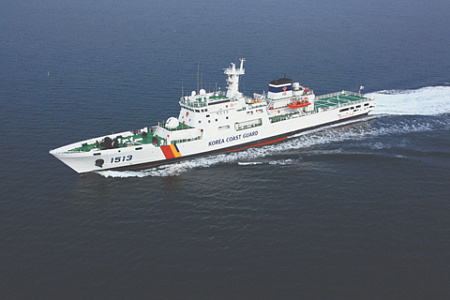
In a significant diplomatic gesture, South Korea has repatriated six North Korean citizens, marking the first such handover to Pyongyang since 2019. The move, which took place on July 9, is being widely interpreted as a clear signal from the new administration of President Lee Jae-myung, who took office in June, of his intent to de-escalate tensions and revive a version of the “sunshine policy” aimed at fostering engagement with the North.
The six individuals had been found in South Korean waters on two separate occasions earlier this year. Four were discovered on a small wooden fishing boat drifting in the Sea of Japan on May 27, while two others were found by the Coast Guard in the Yellow Sea in March. According to Seoul’s Ministry of Unification, all six individuals stated they had crossed the maritime border accidentally and expressed a clear desire to return home.
The repatriation process was complicated by Pyongyang’s decision in 2023 to sever all inter-Korean communication lines. Seoul had to relay its request through the U.S.-led United Nations Command, which has overseen the armistice since the Korean War. While North Korea never formally responded, it dispatched a patrol boat to the pre-arranged handover point, allowing the transfer to proceed.
However, the decision has drawn sharp criticism from human rights organizations in South Korea. Activists argued that an independent third party, such as the UN or a neutral nation, should have been involved to verify that the fishermen were not being coerced into returning. These concerns are amplified by a controversial 2019 incident where two North Korean fishermen, who were accused of murder, were forcibly repatriated against their will, raising fears about their fate upon return.
The incident highlights the complex and often tragic situation of North Koreans who leave their country. Contrary to the stereotype of an impenetrable state, thousands have fled over the years, though most cross into China seeking escape from poverty rather than political persecution. These individuals are often treated as illegal economic migrants by Beijing and face the constant threat of deportation, exploitation, and human trafficking.
Under South Korean law, all North Koreans are considered citizens of the Republic of Korea. Yet the journey south is perilous, and few attempt it. The fate of those who are returned to North Korea remains a contentious issue. While human rights groups allege that repatriated citizens face torture and imprisonment, citing international conventions that forbid returning people to such dangers, these claims are difficult to independently verify as they often rely on defector testimony.
President Lee’s administration appears to be framing this repatriation as part of a broader strategy to build trust. The move follows other recent de-escalatory measures, including the cessation of propaganda broadcasts from loudspeakers along the border and a crackdown on activists sending anti-regime leaflets and South Korean media into the North. Together, these actions represent a calculated effort to reopen dialogue and steer the volatile inter-Korean relationship toward a more stable path.
